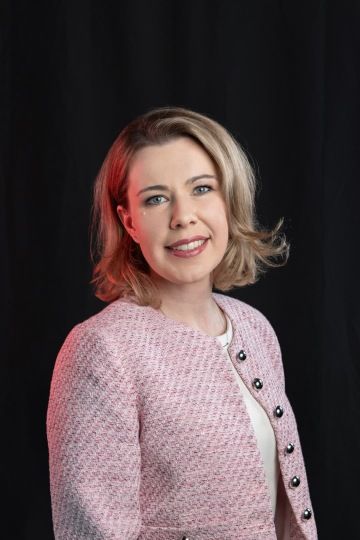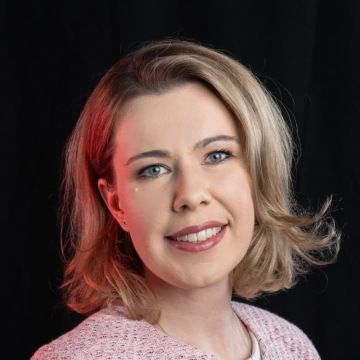Markéta Flanderková
owner and attorney
As an equity partner at the firm, Markéta Flanderková specialises in trust funds and foundations, optimal wealth structuring, and the criminal liability of legal entities.
Her practice centres on wealth management and protection, the effective organisation and transformation of holding structures, and corporate governance and transactional matters. With a strong grasp of both legal and business considerations, she delivers practical, workable solutions tailored to each client’s situation.

“Every problem has a solution – being the guide who helps to find it is not only a personal challenge, but also a responsibility towards the client and to myself.”
Markéta Flanderková

Bohumil Kubišta, Promenade in the Riegr Gardens, 1907
She graduated from the Faculty of Law at Masaryk University in Brno, where she also completed her doctoral studies and earned the academic title Ph.D. in 2021. She was subsequently awarded her JUDr. title by the Faculty of Law at Charles University.
Markéta Flanderková joined Portos in 2015, and from 2018 led one of its legal teams as senior lawyer. She became a non-equity partner in 2021 and was promoted to equity partner in 2026.
Papers and articles she has penned regularly appear in journals. She speaks at conferences and is the author of numerous publications and commentaries. In 2023 and 2024, she was named in the prestigious Top 100 Women in the Czech Legal Industry in the M&A, Corporate Law, and Private Equity category. She and Jakub Hollmann are the Czech Republic’s only representatives in the Cambridge Forum, which draws together global wealth management experts.
Responsible wealth management in the 21st century
Today’s business environment places a growing emphasis on long-term planning and responsible wealth management. Running a company successfully is no longer enough. It is also necessary to think ten, twenty, or even fifty years into the future.


Markéta Flanderková
topic lead
Business owners are therefore increasingly considering how best to protect assets from risk, how to structure their business so that it functions independently of their direct involvement, and how to ensure its smooth transfer to the next generation.

Markéta Flanderková
Holding structures are among the most effective tools for achieving these goals. They enable businesses to be managed efficiently, to separate assets from operational risk, and to support both expansion and succession planning, all while strengthening overall wealth protection. This also involves setting up sound corporate relationships and introducing clear internal rules for how holding structures operate, particularly in view of the growing attention being paid to the criminal liability of legal entities in recent years. The objective is to ensure effective governance and control, maximising efficiency and minimising business risk.
Alongside traditional holding structures, other vehicles – such as trust funds, endowment funds, foreign family foundations, and trusts – are playing an increasingly important role. These are arrangements that allow assets to be separated from personal ownership and clearly set out how they are to be managed in the future, whether for protection, investment, or intergenerational transfer. They are flexible, allow for the establishment of precise rules, and offer a high degree of stability. They also help to preserve family values and the founder’s original vision. They may be used for the education of descendants, the systematic management of family wealth, or philanthropic initiatives. Their clearly defined structure makes them a long-term cornerstone of responsible wealth planning in families seeking to carry success forwards across generations.
In the 21st century, wealth management is not just about efficiency. Above all, it is about responsibility, structured protection, and enduring vision. I am proud that we are able to work with our clients systematically on these very issues, always with the aim of identifying the most effective solutions.
